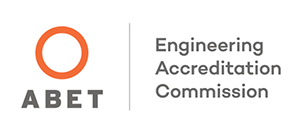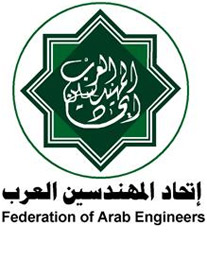Accreditation
ABET Accreditation

The Bachelor of Engineering degree programs listed below are accredited by the Engineering Accreditation Commission of ABET, https://www.abet.org, under the commission’s General Criteria and Program Criteria for the corresponding engineering program.
- Bachelor of Engineering in Civil Engineering
- Bachelor of Engineering in Computer Engineering
- Bachelor of Engineering in Electrical Engineering
- Bachelor of Engineering in Industrial Engineering
- Bachelor of Engineering in Mechanical Engineering
- Bachelor of Engineering in Mechatronics Engineering
- Bachelor of Engineering in Petroleum Engineering
ABET is the global accreditor of college and university programs in applied science, computing, engineering, and engineering technology.
ABET accreditation assures that programs meet standards to produce graduates ready to enter critical technical fields that are leading the way in innovation and emerging technologies, and anticipating the welfare and safety needs of the public.
Sought worldwide, ABET’s voluntary peer-review process is highly respected because it adds critical value to academic programs in the technical disciplines, where quality, precision, and safety are of the utmost importance.
Developed by technical professionals from ABET’s member societies, ABET criteria focus on what students experience and learn. ABET accreditation reviews look at program curricula, faculty, facilities, and institutional support and are conducted by teams of highly skilled professionals from industry, academia, and government, with expertise in the ABET disciplines.
ABET is a nonprofit, non-governmental organization recognized by the Council for Higher Education Accreditation (CHEA). It currently accredits almost 3,500 programs at nearly 700 colleges and universities in 28 countries.
More information about ABET, its member societies, and the accreditation criteria used to evaluate programs can be found at www.abet.org.
Federation of Arab Engineers Accreditation

The following degree programs are accredited by the Federation of Arab Engineers:
- Bachelor of Engineering in Civil Engineering
- Bachelor of Engineering in Computer Engineering
- Bachelor of Engineering in Electrical Engineering
- Bachelor of Engineering in Industrial Engineering
- Bachelor of Engineering in Mechanical Engineering
FAE is a regional, non-governmental organization representing the engineering profession within the Arab world. It is a member of the World Federation of Engineering Organizations, under the auspices of the United Nations Educational, Scientific, and Cultural Organizations (UNESCO).
FAE accreditation assures that programs meet standards to produce graduates ready to enter critical technical fields in the Arab region. FAE’s voluntary peer-review process is highly respected in the region because it adds critical value to academic programs in the technical disciplines, where quality, precision, and safety are of the utmost importance. One of the main goals of the FAE is to contribute to the unification of the foundations of engineering sciences in universities, and engineering institutions in the Arab world.
FAE criteria focus on what students experience and learn. FAE accreditation reviews look at program curricula, faculty, facilities, and institutional support and are conducted by teams of highly skilled professionals from industry, academia, and government, with expertise in the FAE disciplines.
More information about FAE, its member societies, and the accreditation criteria used to evaluate programs can be found at www.arabfedeng.org.